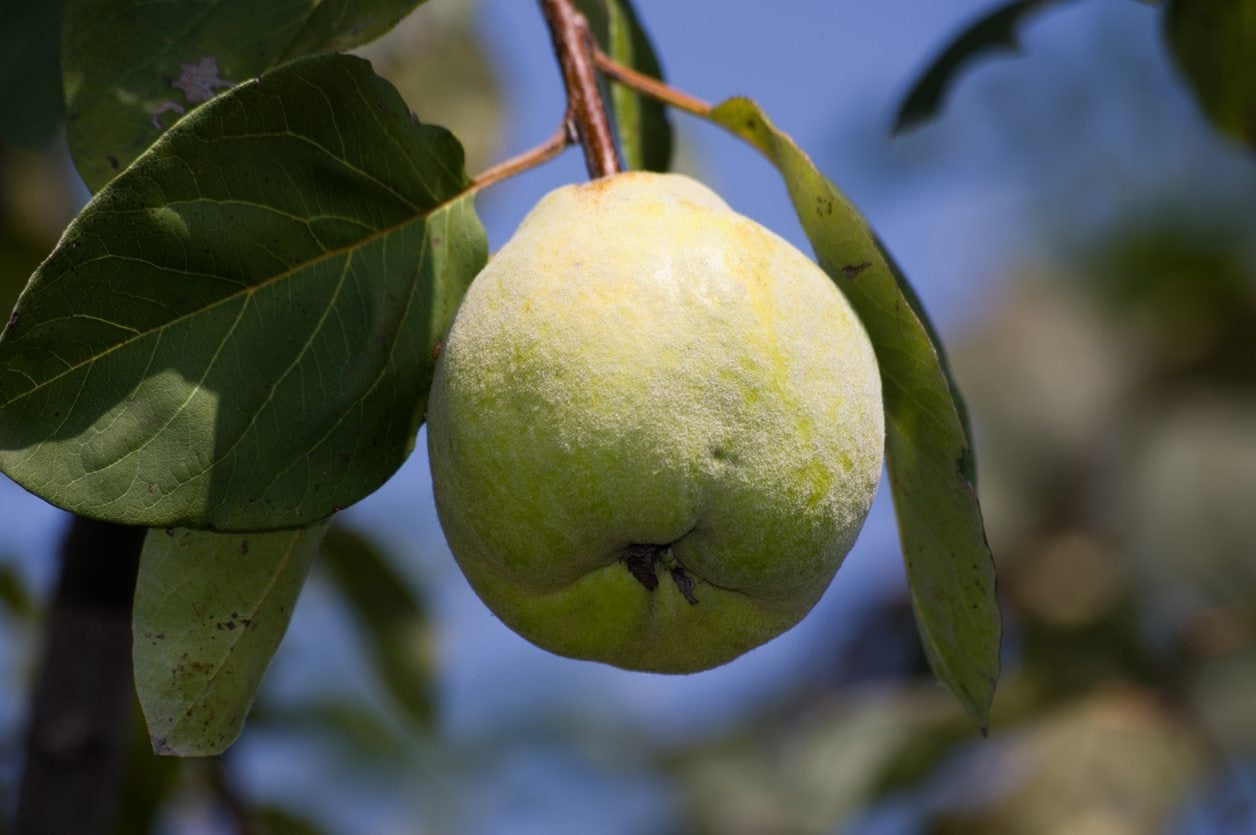How To Grow Quince In Containers – Tips For Growing Quince In A Pot


Fruiting quince is a fascinating, little grown tree that deserves more recognition. Usually passed up in favor of more popular apples and peaches, quince trees are a very manageable, slightly exotic addition to the garden or orchard. If you’re short on space and feeling ambitious, a potted quince tree can be an asset to the patio. Keep reading to learn more about growing quince in a container.
Growing Quince in a Container
Before we get any further, it’s important to clear up which kind of quince we’re talking about. There are two major plants that go by the name “quince” – fruiting quince and flowering Japanese quince. The latter can be grown successfully in containers, but we’re here to talk about the former, also known as Cydonia oblonga. To create even more confusion, this quince is not related to its Japanese namesake and shares none of the same growing requirements. So, can you grow quince trees in pots? The answer is… probably. It’s not a commonly grown container plant, but it is possible, provided you use a big enough pot and a small enough variety of tree. Choose a dwarf variety, or at least a tree that is grafted onto a dwarfing rootstock, to get a quince that is likely to stay small and thrive in a container. Even with dwarf trees, however, you’ll want to choose as big a container as you can manage-- your tree will likely take on the shape and size of a large shrub and will still need plenty of room for its roots.
How to Grow Quince in Containers
Quince likes rich, light, loamy soil that’s kept moist. This can be a bit of a challenge with pots, so be sure to water your tree regularly to keep it from drying out too much. Make sure it doesn’t become waterlogged, though, and ensure that your container has plenty of drainage holes. Place the container in full sun. Most quince trees are hardy in USDA zones 4 through 9, which means they can tolerate winter in a container down to zone 6. If you live in a colder climate, consider bringing your container grown quince tree indoors for the coldest months, or at the very least protect the container with insulation or mulch and keep it out of strong winter winds.
Sign up for the Gardening Know How newsletter today and receive a free copy of our e-book "How to Grow Delicious Tomatoes".

The only child of a horticulturist and an English teacher, Liz Baessler was destined to become a gardening editor. She has been with Gardening Know how since 2015, and a Senior Editor since 2020. She holds a BA in English from Brandeis University and an MA in English from the University of Geneva, Switzerland. After years of gardening in containers and community garden plots, she finally has a backyard of her own, which she is systematically filling with vegetables and flowers.